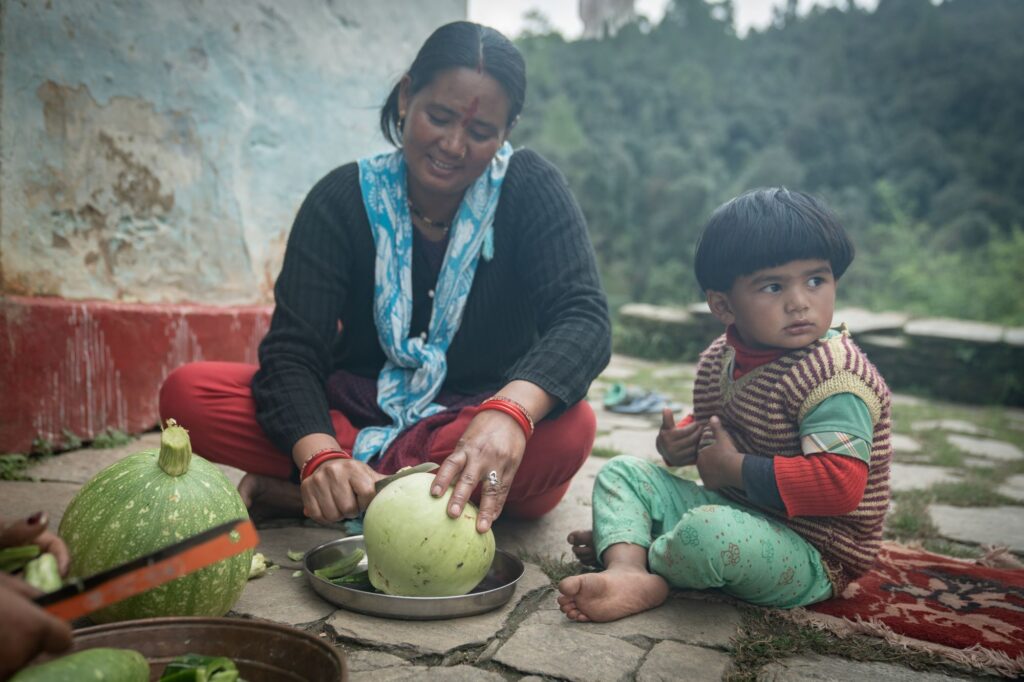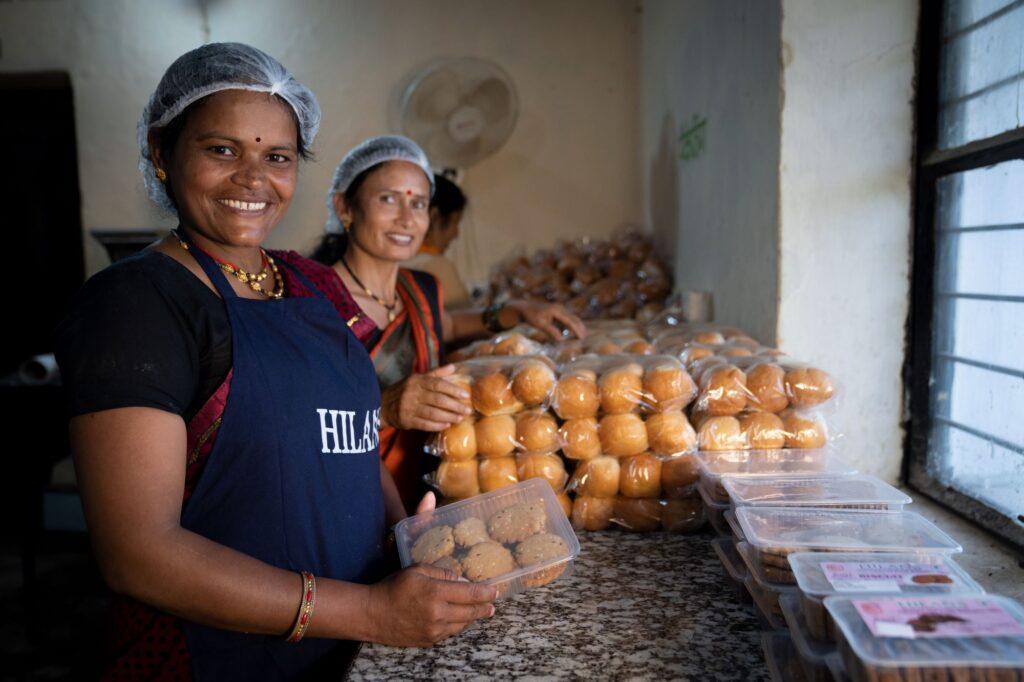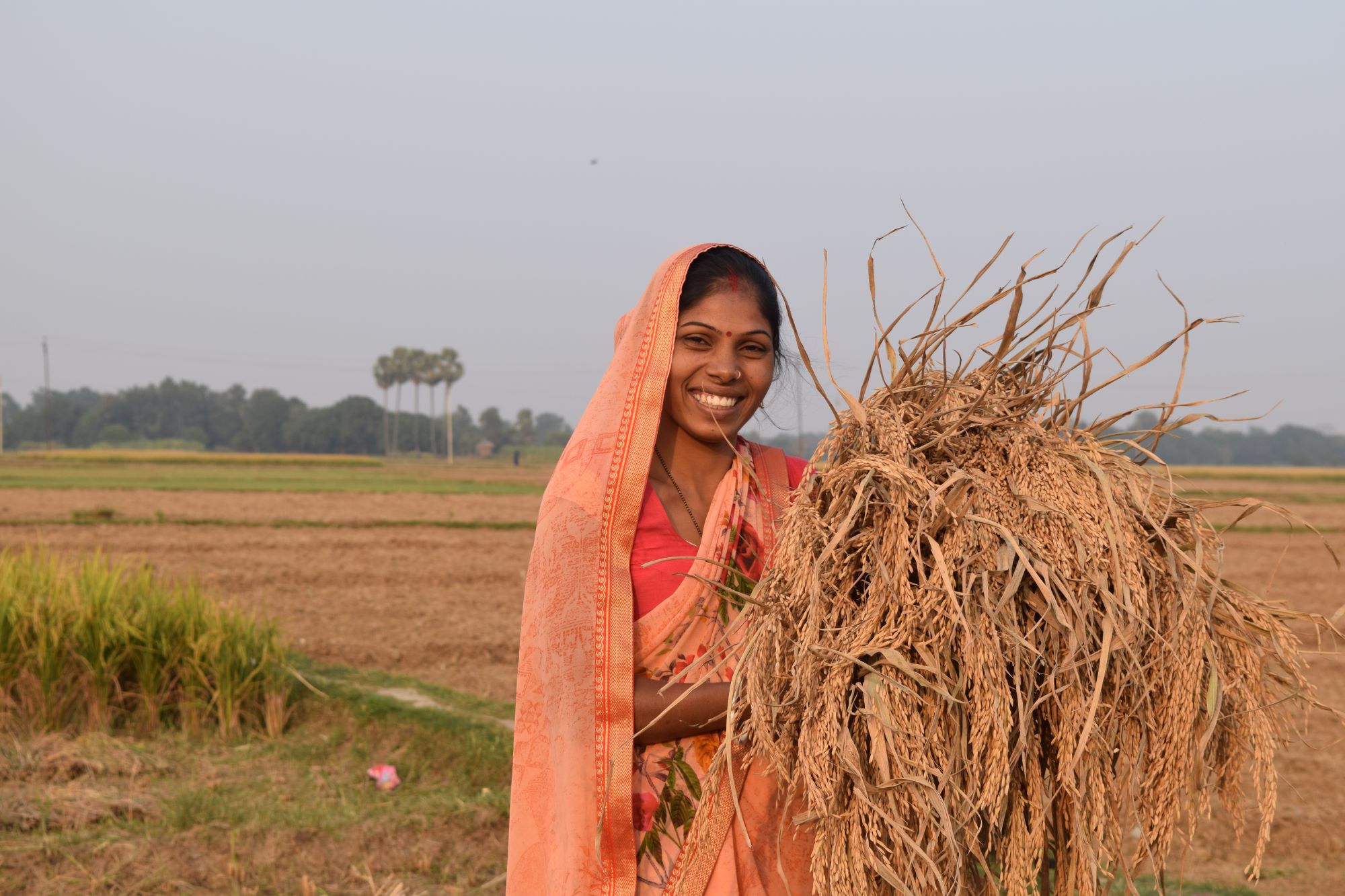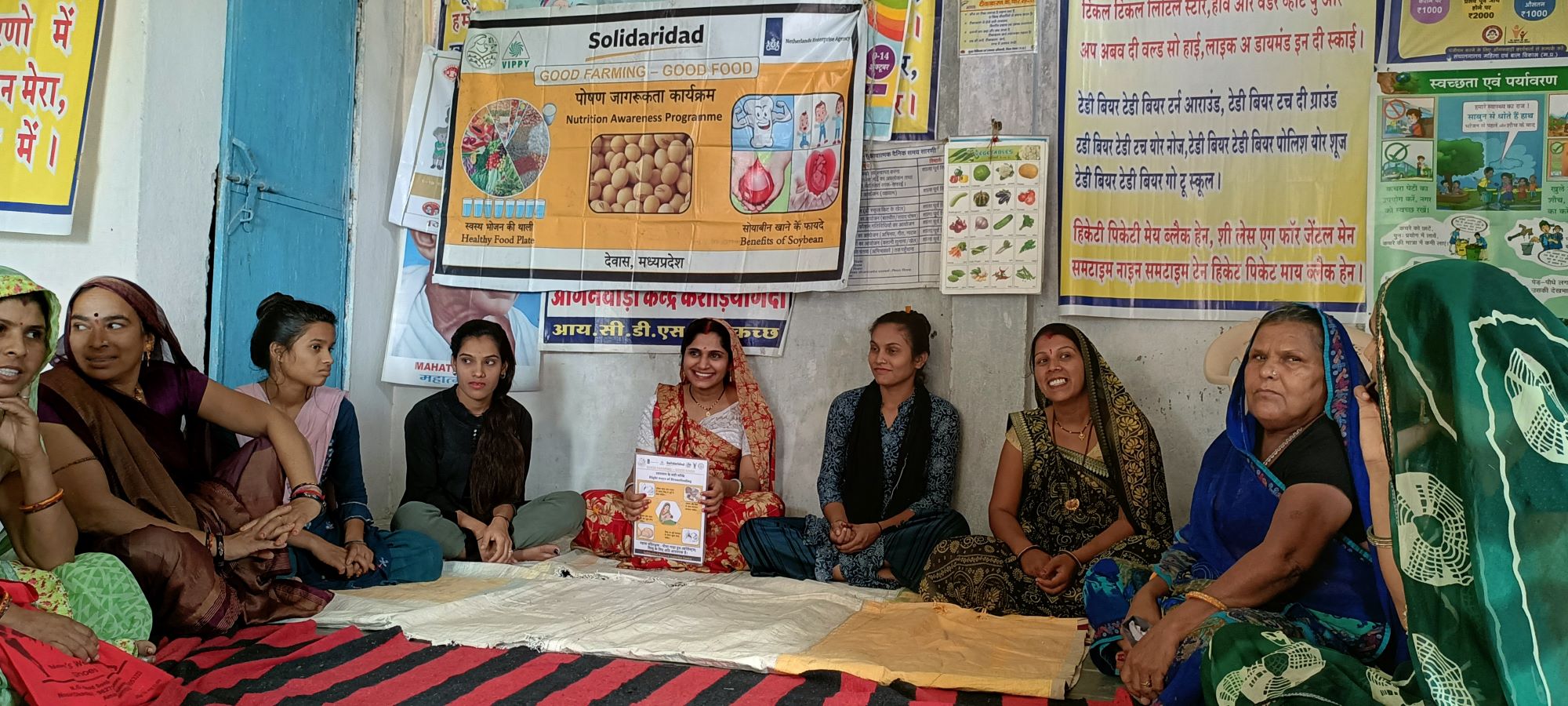IFAD prioritizes food security through improved production systems, emphasizing nutrition and gender sensitivity
Worldwide, approximately three billion people have poor-quality diets and more than two billion people suffer from micronutrient deficiencies. Nearly 25 per cent of children under the age of five are chronically undernourished.
Despite making tremendous progress in reducing hunger and poverty, India continues to have high rates of malnutrition. Malnutrition causes health problems and losses in economic productivity, including GDP losses. Over the course of their lifetimes, malnourished individuals can earn 10 per cent less than those who are well-nourished.
Without access to adequate, affordable, nutritious food, generations remain trapped in poverty, unable to take advantage of educational and job opportunities to fulfil their potential.
Investing in nutrition through agriculture is not only socially responsible, it is sound development policy and good economics. Its impact is multi-generational, allowing children to reach their full physical and intellectual potential, so that they can grow into healthy adults and lift themselves out of poverty.
Improving food security through better food production systems is at the heart of the work done by the International Fund for Agricultural Development (IFAD). It designs its projects through a nutrition- and gender-sensitive lens, helping rural people to improve their diets by growing and consuming diverse, nutritious, safe and affordable foods.
To combat malnutrition, IFAD combines its solid technical knowledge with investments in nutrition- and gender-sensitive agriculture, through unique food-based approaches. IFAD finances nutritional education and supports actions that reshape food systems and improve nutrition security.
IFAD also pays special attention to the role of women and adolescent girls, who make up a large percentage of the workforce in agriculture and food systems in developing countries. They are also the safeguards of nutritious diets in their households.
Empowering women by improving their knowledge of nutrition, as well as promoting maternal nutrition and nutrition of adolescent girls, dietary intake, and hygiene behaviours, can reduce undernutrition for entire generations.
Gender-sensitive agricultural projects help ensure women have more control over resources and that both rural men and women understand the important role that they can play in supporting good nutrition.

The IFAD and Government of Maharashtra Nav Tejaswini project works with rural women in the state to enhance nutrition levels by channeling the power of self-help groups (SHGs) to promote awareness and behavioural change at the household, community and village level. This includes providing information on the quality of food on the family table, the easy availability of nutritious food, specific information related to anaemia, and creating awareness about healthy cooking.
Nav Tejaswini has conducted over 4,000 health checkup and awareness camps in villages over the past two years, checking women’s haemoglobin (HB) levels and their body mass index (BMI). Families of women with low HB count receive counselling on measures to address anaemia. It has also introduced “SHG health cards” across 25,000 SHGs, reaching 3,00,000 rural SHG members, to monitor HB every six months and track the improvement in nutrition levels in SHG members. Families with low HB counts are encouraged to develop nutri-gardens to improve accessibility to healthy food. Households receive technical guidance to develop these gardens, which includes information on selecting suitable vegetables, creating a seasonal calendar and awareness about fertilizer and pesticide management. Seeds are also provided.

The ‘tiranga thali’ campaign is an innovative idea that draws on the success of a previous IFAD initiative in Madhya Pradesh. It advocates for each plate to contain ingredients of the three colours from the Indian flag: saffron (pulses like yellow split peas, pigeon peas, and split red lentils) representing proteins; white (rice, milk and roti) representing carbohydrates; and green (leafy vegetables) representing vitamins and minerals. Health master trainers introduced women in 1,850 villages to this concept.
IFAD’s innovative advocacy initiatives include organizing low-cost nutritious recipe competitions and awarding “best nutri-village” and “anaemia-free village” tags to break down barriers for people who think they cannot afford to eat healthily and changing perceptions about what it takes to cook a healthy meal and access healthy food.

IFAD is also mainstreaming nutrition across all of its programmes and projects, especially for those most likely to be left behind. IFAD promotes dialogue among concerned partners, which strengthens understanding, brokers collaboration, and promotes new pathways for nutrition- and gender-sensitive agriculture. IFAD also taps into other reservoirs of knowledge and collaborates with institutions with specialized research skills.
For example, IFAD partners with the Azim Premji Philanthropic Initiative and the Public Health Resource Society to address nutritional deficiencies among women and children of 13 particularly vulnerable tribal groups (PVTGs) in Odisha through the Odisha PVTG Empowerment and Livelihoods Improvement Programme (OPELIP) by building 60+ community-based crèches in PVTG villages for children less than 3 years.

These nutrition resource centres or Matru Sisu Poshan Kendras (MSPK) cum creches are an initiative to bridge the nutritional gap among PVTGs and to impart knowledge about better nutrition practices to tribal communities suffering from malnourishment. The MSPK cum creches have successfully bridged the gap between available resources and their effective utilization to introduce healthy eating. They also act as demonstration points for mushroom cultivation, model nutritional kitchen gardens, vermicompost and organic manure demonstration units, etc. Children aged 3-6 years in remote hamlets are spot fed in convergence with the Integrated Child Development Services (ICDS) and the Department of Women and Child Development’s Mission Shakti. Pregnant women and lactating mothers also receive one full meal. Food and nutrition security is both an indicator and a driver of inclusive economic growth and sustainable development. It is also an investment in the future. For this reason, the scope of global malnutrition demands a robust and collaborative approach, driven by the local realities of smallholders and rural food systems.








